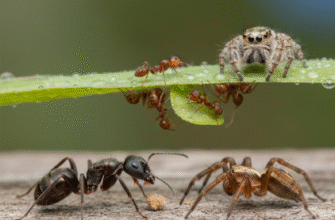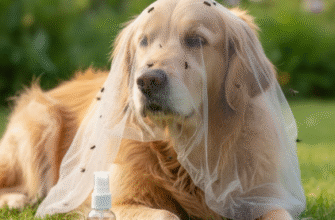That familiar buzz near your ear on a summer evening is annoying, sure, but for our dogs and cats, the tiny mosquito represents a much larger threat than just an itchy welt. These insects are notorious vectors for several serious, and sometimes fatal, illnesses. Protecting our companion animals requires awareness and proactive steps, especially during warmer months when mosquito populations boom, though in many areas, the risk exists year-round.
Understanding the Risks: More Than Just a Bite
When a mosquito bites an infected animal, it ingests microscopic parasites or viruses. When it later bites another animal, like your pet, it can transmit these pathogens. While several diseases can potentially be spread this way, one stands out as a primary concern for pet owners across many regions.
Heartworm Disease: A Major Threat
Heartworm disease is arguably the most significant mosquito-borne threat to dogs and, increasingly recognized, cats. Transmitted as microscopic larvae (microfilariae) through a mosquito bite, these worms mature and migrate to the heart, lungs, and associated blood vessels of the infected animal. Over months, they grow into long, spaghetti-like worms, causing severe damage to vital organs.
In dogs, heartworm disease can lead to lung disease, heart failure, damage to other organs, and ultimately death if untreated. Treatment itself is complex, expensive, and carries risks. For cats, the situation is different but still serious. Cats are not typical hosts, so worms often don’t reach full adulthood or reproduce. However, even immature worms can cause a severe respiratory condition known as Heartworm Associated Respiratory Disease (HARD). Diagnosis can be tricky in cats, and sadly, there is no approved treatment for feline heartworm infection, making prevention absolutely critical.
Other Potential Concerns
While less common or widespread as primary pet health issues compared to heartworm, mosquitoes can potentially transmit other diseases. West Nile Virus, for example, can infect dogs and cats, though clinical illness is relatively rare in pets compared to humans or horses. Other arboviruses (viruses spread by arthropods like mosquitoes) can also pose localized or sporadic risks. The specific risks vary greatly depending on your geographic location and the local mosquito population.
Prevention: Your Best Defense Strategy
Since treating mosquito-borne diseases can be difficult, dangerous, or impossible (especially heartworm in cats), prevention is paramount. A multi-pronged approach offers the best protection for your furry family members.
Reduce Exposure to Mosquitoes
Limiting your pet’s contact with mosquitoes is a fundamental first step.
- Timing Matters: Mosquitoes are often most active during dawn and dusk. If possible, try to limit your pet’s time outdoors during these peak biting hours, especially near wooded areas or standing water.
- Secure Your Home: Ensure window and door screens are intact and free of holes. Don’t leave doors propped open unnecessarily, particularly during high-activity mosquito times.
- Eliminate Standing Water: Mosquitoes need water to breed. Regularly empty water from containers around your property: flowerpots, bird baths (change water frequently), old tires, wheelbarrows, tarps, clogged gutters, and even outdoor water bowls (clean and refill daily). Even small amounts of stagnant water can become mosquito nurseries.
- Yard Maintenance: Keep grass trimmed and bushes pruned. Overgrown vegetation can provide resting places for adult mosquitoes.
Veterinary Preventatives: The Gold Standard
This is perhaps the single most crucial element in protecting pets, especially against heartworm disease.
- Heartworm Prevention: Monthly chewable tablets, topical liquids, or even long-lasting injections (available for dogs) are highly effective at preventing heartworm larvae from developing into dangerous adult worms. These medications are prescription-only for a reason – your veterinarian needs to ensure your pet is heartworm-free before starting prevention (giving preventatives to an already infected dog can cause severe complications) and determine the right product and dosage. Year-round prevention is recommended by veterinarians and the American Heartworm Society, even in colder climates, as mosquito seasons can be unpredictable and transmission can occur indoors.
- Flea and Tick Products with Mosquito Repellency: Some topical flea and tick preventatives also offer protection against mosquitoes. It is vital to discuss these options with your veterinarian. They can recommend a product that is safe and effective for your specific pet’s species (dog vs. cat), age, weight, and health status. Some ingredients effective for dogs are extremely toxic to cats.
Always consult your veterinarian before using any flea, tick, or mosquito repellent product on your pet. Many products safe for dogs are highly toxic to cats. Never apply human insect repellents to animals, as ingredients like DEET can cause severe illness or even death. Consistent, year-round preventative medication as prescribed by your vet is the most effective way to protect against diseases like heartworm.
Pet-Safe Repellents (Use With Caution and Vet Guidance)
While consistent prescription preventatives are key, some owners look for additional repellents. Extreme caution is needed here.
- Never Use Human Products: Products containing DEET or certain essential oils can be toxic if ingested or absorbed through the skin by pets.
- Veterinarian-Approved Options Only: If you are considering an additional repellent spray or wipe, only use products specifically labeled as safe for the species (dog or cat) and approved by your vet. Follow application instructions precisely.
- Natural Doesn’t Always Mean Safe: Some “natural” repellents contain essential oils (like citronella, tea tree, pennyroyal) that can be harmful or irritating to pets, especially cats who are very sensitive metabolically. Always check with your vet.
Recognizing Signs That Warrant a Vet Visit
Preventative measures drastically reduce the risk, but it’s still wise to know general signs that your pet might be unwell and needs veterinary attention. Remember, these are non-specific signs, and only a veterinarian can diagnose your pet.
For potential heartworm disease in dogs, early signs can be subtle or non-existent. As the disease progresses, watch for:
- Mild persistent cough
- Reluctance to exercise
- Fatigue after moderate activity
- Decreased appetite
- Weight loss
In cats, signs can be very vague or mimic other illnesses, including:
- Coughing, wheezing, or difficulty breathing (can resemble asthma)
- Vomiting
- Lack of appetite or weight loss
- Lethargy
- Sudden collapse or death in severe cases
If you notice any of these signs or any other changes in your pet’s behavior, appetite, or energy level, don’t delay. Schedule an appointment with your veterinarian immediately for a proper examination and diagnosis.
Protecting Both Dogs and Cats
While dogs are more susceptible to severe heartworm disease, prevention is just as crucial for cats due to the lack of treatment options. Both species benefit from reducing mosquito exposure around the home. However, their specific preventative medications differ significantly. Always use species-specific products as recommended by your veterinarian – what’s safe for a dog can be deadly for a cat.
Keeping our pets safe from mosquito-borne illnesses requires diligence. By minimizing their exposure to mosquitoes, maintaining a clean environment, and most importantly, partnering with your veterinarian for appropriate, year-round preventative medications, you can significantly reduce the risks and help your beloved companion enjoy a healthier, happier life, free from these preventable diseases. Don’t underestimate the threat these tiny insects pose – take action today.








